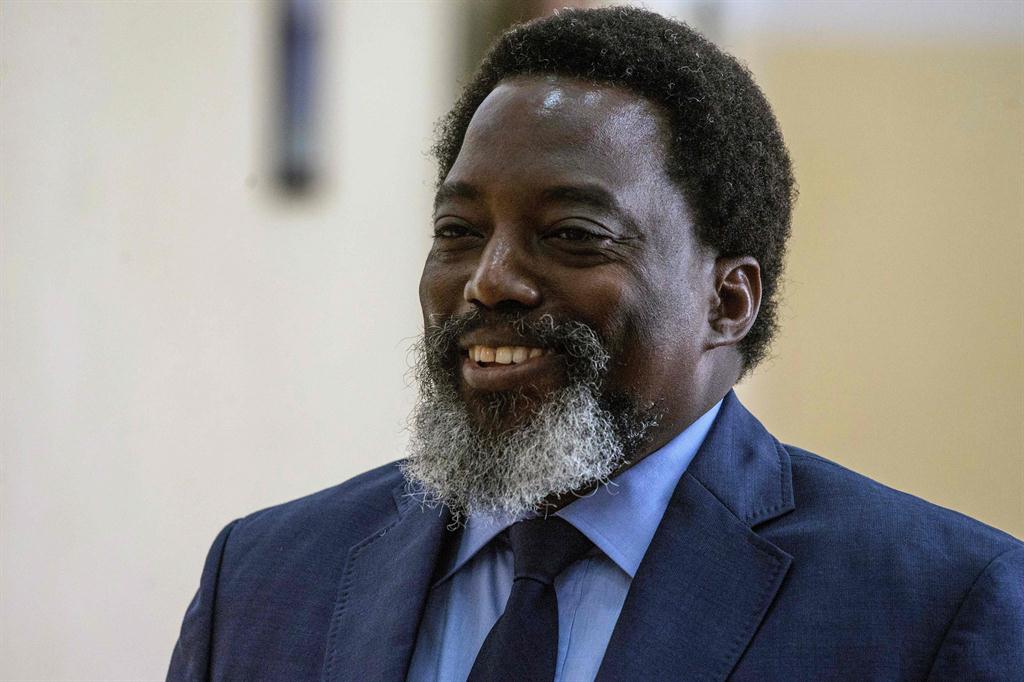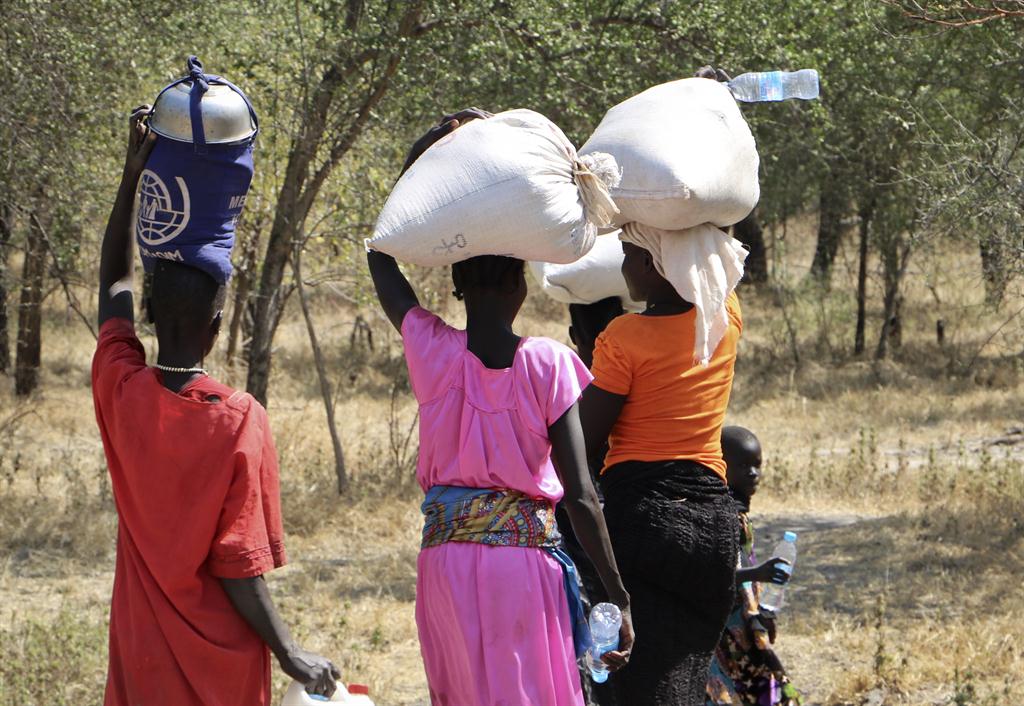Africa Briefs
Somalia's GDP growth seen expanding
Somalia's economic growth is expected to pick up in 2018 as it recovers from drought that had reduced farming output, the International Monetary Fund said yesterday.
It said it projected gross domestic product at 3.1% this year from 2.3% in 2017. Somalia exports bananas and also produces sorghum.
"Economic activity in 2018 is recovering from the 2016/17 drought. A favourable rainy season is supporting the economic recovery, particularly in the agricultural and livestock sectors; this is leading to a decline in food prices," the fund said in a statement.
The IMF expects inflation to reach 3.5% this year, down from 5.5% in 2016.
Somalia has been in turmoil since 1991, when clan-based warlords overthrew dictator Siad Barre and then turned on each other. Over the past decade it has also been hit by an insurgency waged by al Qaeda-linked al Shabaab, as well as famine and maritime piracy. – Nampa/Reuters
Sudanese pound in dramatic slide
The Sudanese currency slid to 60 pounds to the US dollar on the black market on Monday, traders said, increasing the gap with the official rate of 47.5 pounds to its widest since a sharp devaluation two months ago.
The growing gap indicates the pound's official value may have to weaken further, adding to the woes of citizens already suffering shortages of bread and fuel.
The government has been expanding the money supply to finance its budget deficit, spurring inflation and weakening the currency's value.
"The deterioration of the Sudanese pound's real value has made everyone rush to convert their savings into dollars," economics professor and analyst Abdullah al-Ramadi told Reuters. "Bloated government spending has increased inflation."
Annual inflation edged up to 68.93% in November from 68.44% in October, the state statistics agency said on Sunday. – Nampa/Reuters
EU renews Congo sanctions
The European Union renewed sanctions on Monday against the ruling coalition's candidate for presidential elections in Democratic Republic of Congo, Emmanuel Ramazani Shadary, and 13 other senior officials.
The decision is likely to worsen relations between the EU and President Joseph Kabila's government, which has lobbied against sanctions it calls an illegal violation of its sovereignty.
Kabila has also refused to accredit EU election observers despite concerns by opposition politicians, civil society activists and foreign powers about the credibility of the Dec. 23 vote.
He is due to step down next month after 18 years in power and wants Shadary as his successor. Many experts consider him the favourite given the ruling coalition's institutional advantages.
The EU imposed sanctions in 2016 and 2017 on Shadary and 15 other nationals over violent crackdowns on protests and repeated delays to the election, which was originally meant to take place two years ago. Two of the 16 have since been transferred to a UN sanctions list. – Nampa/Reuters
Kenyan officials charged over graft
A Kenyan court on Monday charged senior officials from the state-run oil pipeline and others from the state health insurance fund for abuse of office and economic crimes that led to the loss of billions of shillings from the two institutions.
Dozens of Kenyan government officials and business people have appeared in court since May on charges relating to the alleged theft of hundreds of millions of shillings from public coffers in a new drive to tackle widespread graft.
Joe Sang, the managing director of Kenya Pipeline Company, and five of his colleagues were charged with abuse of office in connection with the loss of funds in the construction of a fuel jetty in western Kenya worth 1.96 billion shillings (US$19 million), a figure that exceeded the original budget.
Geoffrey Mwangi, the chief executive officer of the National Health Insurance Fund, his predecessor and 16 other officials were also charged with abuse of office an irregular award and extension of a contract in which 1.1 billion shillings was lost.
They all pleaded not guilty to the charges. – Nampa/Reuters
Libya's NOC declares force majeure
Libya's National Oil Company (NOC) said on Monday it has declared force majeure on exports from the El Sharara oilfield after the facility was seized by local militia.
NOC said in a statement the shutdown of its biggest oilfield would result in a production loss of 315 000 barrels per day (bpd) at the site, and an additional loss of 73 000 bpd at the El Feel oilfield.
Production at the Zawiya refinery was also at risk due to its dependence on crude oil supply from Sharara, the company said.
NOC said in a statement on Sunday that armed militia had stormed onto the premises on Saturday after some guards and locals claiming to be attached to the guard force had opened the gates. Members of the group then drove around in jeeps, filming themselves in videos they sent to journalists. Sources told Reuters that local tribesmen were also in the group.
Libya is divided and run by two weak governments and armed groups, tribesmen and normal Libyans tend to vent their anger about high inflation and a lack of infrastructure on the NOC, which they see as a cash cow booking billions of dollars in annual oil and gas revenues. – Nampa/Reuters
Somalia's economic growth is expected to pick up in 2018 as it recovers from drought that had reduced farming output, the International Monetary Fund said yesterday.
It said it projected gross domestic product at 3.1% this year from 2.3% in 2017. Somalia exports bananas and also produces sorghum.
"Economic activity in 2018 is recovering from the 2016/17 drought. A favourable rainy season is supporting the economic recovery, particularly in the agricultural and livestock sectors; this is leading to a decline in food prices," the fund said in a statement.
The IMF expects inflation to reach 3.5% this year, down from 5.5% in 2016.
Somalia has been in turmoil since 1991, when clan-based warlords overthrew dictator Siad Barre and then turned on each other. Over the past decade it has also been hit by an insurgency waged by al Qaeda-linked al Shabaab, as well as famine and maritime piracy. – Nampa/Reuters
Sudanese pound in dramatic slide
The Sudanese currency slid to 60 pounds to the US dollar on the black market on Monday, traders said, increasing the gap with the official rate of 47.5 pounds to its widest since a sharp devaluation two months ago.
The growing gap indicates the pound's official value may have to weaken further, adding to the woes of citizens already suffering shortages of bread and fuel.
The government has been expanding the money supply to finance its budget deficit, spurring inflation and weakening the currency's value.
"The deterioration of the Sudanese pound's real value has made everyone rush to convert their savings into dollars," economics professor and analyst Abdullah al-Ramadi told Reuters. "Bloated government spending has increased inflation."
Annual inflation edged up to 68.93% in November from 68.44% in October, the state statistics agency said on Sunday. – Nampa/Reuters
EU renews Congo sanctions
The European Union renewed sanctions on Monday against the ruling coalition's candidate for presidential elections in Democratic Republic of Congo, Emmanuel Ramazani Shadary, and 13 other senior officials.
The decision is likely to worsen relations between the EU and President Joseph Kabila's government, which has lobbied against sanctions it calls an illegal violation of its sovereignty.
Kabila has also refused to accredit EU election observers despite concerns by opposition politicians, civil society activists and foreign powers about the credibility of the Dec. 23 vote.
He is due to step down next month after 18 years in power and wants Shadary as his successor. Many experts consider him the favourite given the ruling coalition's institutional advantages.
The EU imposed sanctions in 2016 and 2017 on Shadary and 15 other nationals over violent crackdowns on protests and repeated delays to the election, which was originally meant to take place two years ago. Two of the 16 have since been transferred to a UN sanctions list. – Nampa/Reuters
Kenyan officials charged over graft
A Kenyan court on Monday charged senior officials from the state-run oil pipeline and others from the state health insurance fund for abuse of office and economic crimes that led to the loss of billions of shillings from the two institutions.
Dozens of Kenyan government officials and business people have appeared in court since May on charges relating to the alleged theft of hundreds of millions of shillings from public coffers in a new drive to tackle widespread graft.
Joe Sang, the managing director of Kenya Pipeline Company, and five of his colleagues were charged with abuse of office in connection with the loss of funds in the construction of a fuel jetty in western Kenya worth 1.96 billion shillings (US$19 million), a figure that exceeded the original budget.
Geoffrey Mwangi, the chief executive officer of the National Health Insurance Fund, his predecessor and 16 other officials were also charged with abuse of office an irregular award and extension of a contract in which 1.1 billion shillings was lost.
They all pleaded not guilty to the charges. – Nampa/Reuters
Libya's NOC declares force majeure
Libya's National Oil Company (NOC) said on Monday it has declared force majeure on exports from the El Sharara oilfield after the facility was seized by local militia.
NOC said in a statement the shutdown of its biggest oilfield would result in a production loss of 315 000 barrels per day (bpd) at the site, and an additional loss of 73 000 bpd at the El Feel oilfield.
Production at the Zawiya refinery was also at risk due to its dependence on crude oil supply from Sharara, the company said.
NOC said in a statement on Sunday that armed militia had stormed onto the premises on Saturday after some guards and locals claiming to be attached to the guard force had opened the gates. Members of the group then drove around in jeeps, filming themselves in videos they sent to journalists. Sources told Reuters that local tribesmen were also in the group.
Libya is divided and run by two weak governments and armed groups, tribesmen and normal Libyans tend to vent their anger about high inflation and a lack of infrastructure on the NOC, which they see as a cash cow booking billions of dollars in annual oil and gas revenues. – Nampa/Reuters






Kommentaar
Republikein
Geen kommentaar is op hierdie artikel gelaat nie